The Class of 2019 will be making the record books this year not only as the most eclectic class in Lafayette’s history, but as the first one to be grouped into Commons for the purpose of building a stronger sense of community, creating memories, and having a shared experience with peers.
“We begin by building affinity,” says Provost S. Abu Rizvi. “We want students not only to connect with each other, but also with all kinds of groups and activities that go on here.”
Students have been assigned to one of five Commons, each named after one of the Marquis de Lafayette’s ships, and will gather throughout the year for special events and speakers, compete in first-year intramural sports and host socials within their Commons and with members from other Commons. Each Commons will develop a unique identity and members will remain affiliated with the same Commons throughout their time at Lafayette.
“It’s a way to build class identity by creating opportunities for members of the first-year class to interact with both smaller and larger groups – their Commons as well as their 672 other classmates,” says Paul McLoughlin, dean of students. “It allows students to have a shared experience as a first-year student in the 184th class. It’s easier to create shared experiences with 100 other peers than it is trying to connect with almost 700 peers all at once. There’s something a little more special in that.”
The Commons are an integral part of the new Connected Communities Program (CCP), and the platform for integrating a student’s academic, social, and personal experience. Students in the five commons are housed in nine residential halls across campus and plans call for developing social spaces that will serve as a hub for exchanging ideas, learning, and hanging out.
“The Commons will provide students with opportunities to build unique communities that will serve as the foundation for their Lafayette experience, not unlike what the colleges did for students at Oxford or Cambridge,” says McLoughlin.
Each Commons has a cohort of upper-level peer advisers to help new students navigate the first-year experience, including orientation leaders, resident advisers, and 21 ‘Pardners’ tasked with creating and presenting programs on such topics as leadership, personal wellness, and cultural competency.
“The PARDners will serve as peer advisers, and we have trained them just as we would new faculty advisers,” says Erica D’Agostino, dean of advising and co-curricular programs. “They will host drop-in sessions prior to course registration so first-year students can ask them questions about selecting courses, how to navigate Banner, and how to make the most of their faculty advising relationship. We hope the PARDners will serve as an excellent advising resource for the first-year students and also support the faculty advisers in their work with our newest students.”
Faculty members are also creating curricular opportunities for a vibrant intellectual life that will move beyond the classroom into residential settings and elsewhere, says Rizvi. For example, geology professor Kira Lawrence and engineering studies professor Ben Cohen are helping to shape one of the CCP modules by having their senior capstone students in environmental studies and science develop a curriculum on sustainability and environmental issues. Following this fall’s course, a new CCP module will be tied to Earth Day and will encourage students to be more environmentally aware and engage in activities that support campus sustainability.
Plans include a guest lecture and a hands-on activity, such as work at LaFarm, the College’s community garden and farm, which would then be followed by small group discussions about their experiences.
The CCP will provide new opportunities to introduce important education and hands-on experiences through innovative residential programming.
Life in the Commons is not only about academics. It also involves fielding teams to compete in a variety of intramural sports, including flag football, soccer, and Ultimate Frisbee. Points will be awarded for participation, success, and good sportsmanship, and the Commons with the highest point total at the end of the academic year will be awarded the McGaughey Cup, named in honor of the late George McGaughey, who was the first person to serve as the coordinator of intramural sports at Lafayette. The McGaughey Cup was awarded for years but more recently had been shelved. The CCP will reintroduce lost traditions and create news ones at the same time.
CCP is not only about fostering connections among students, Rizvi says, but transforming and enhancing their academic, social, and personal lives.
“What’s really exciting about CCP is that it deepens our success as a residential liberal arts college. It helps bring new students into the Lafayette community, builds their affinity for the place, allows them to flourish during their years here and sustains them long after they graduate.”
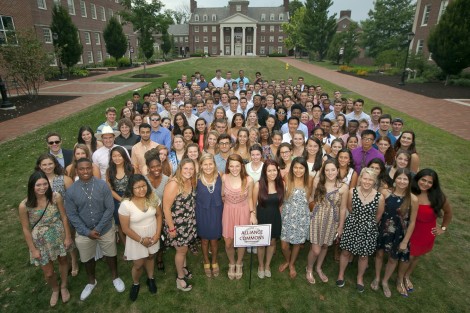
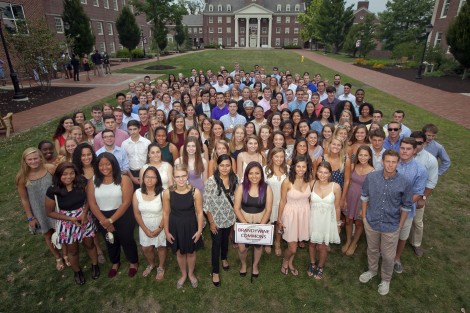
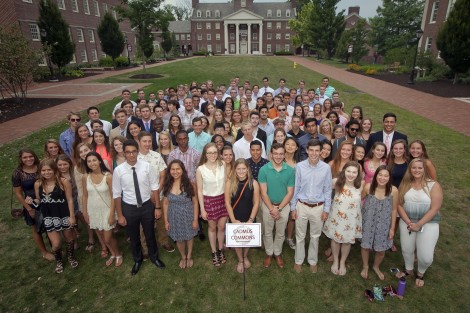
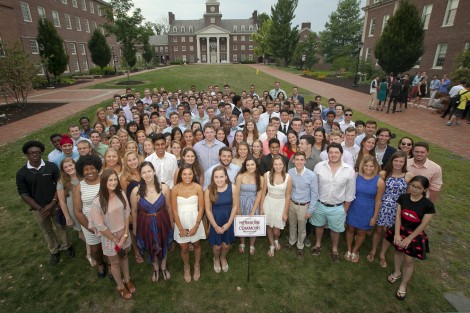
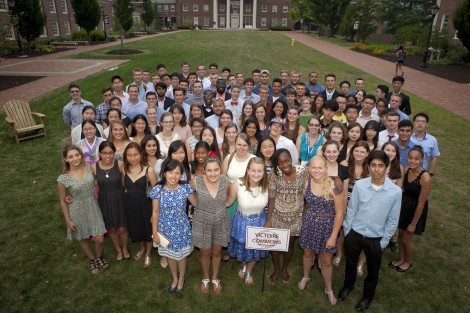
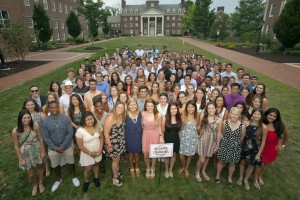
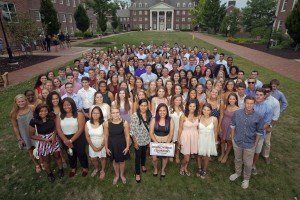
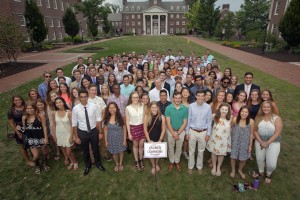
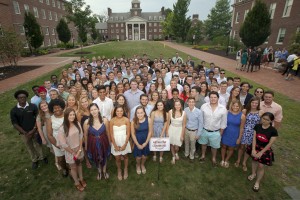
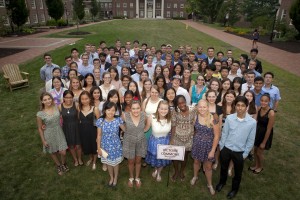
4 Comments
What a terrific way to start the student’s life on campus. Being connected and feeling like you belong is very important to the student’s perspective of what life on campus will be. I applaud Lafayette College for providing this innovative way to assist their students in this transition from high school to the more independent college life.
Fabulous! Our son has not been there a week and I am so impressed by the College. The Commons Concept is a super idea and I think it is great you have a parent’s relation officer too to answer questions. Donna is fantastic. Go Lafayette!
I tried, many years ago, to have our daughter consider a private high school by likening it to Hogwarts. She didn’t buy it. Fast forward four years, and that same daughter finds herself in Cadmus House (aka Gryffindor?) and loving it. Thank you, Lafayette College, for showing just once that father knows best.
Comments are closed.